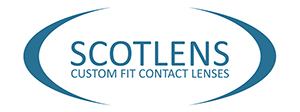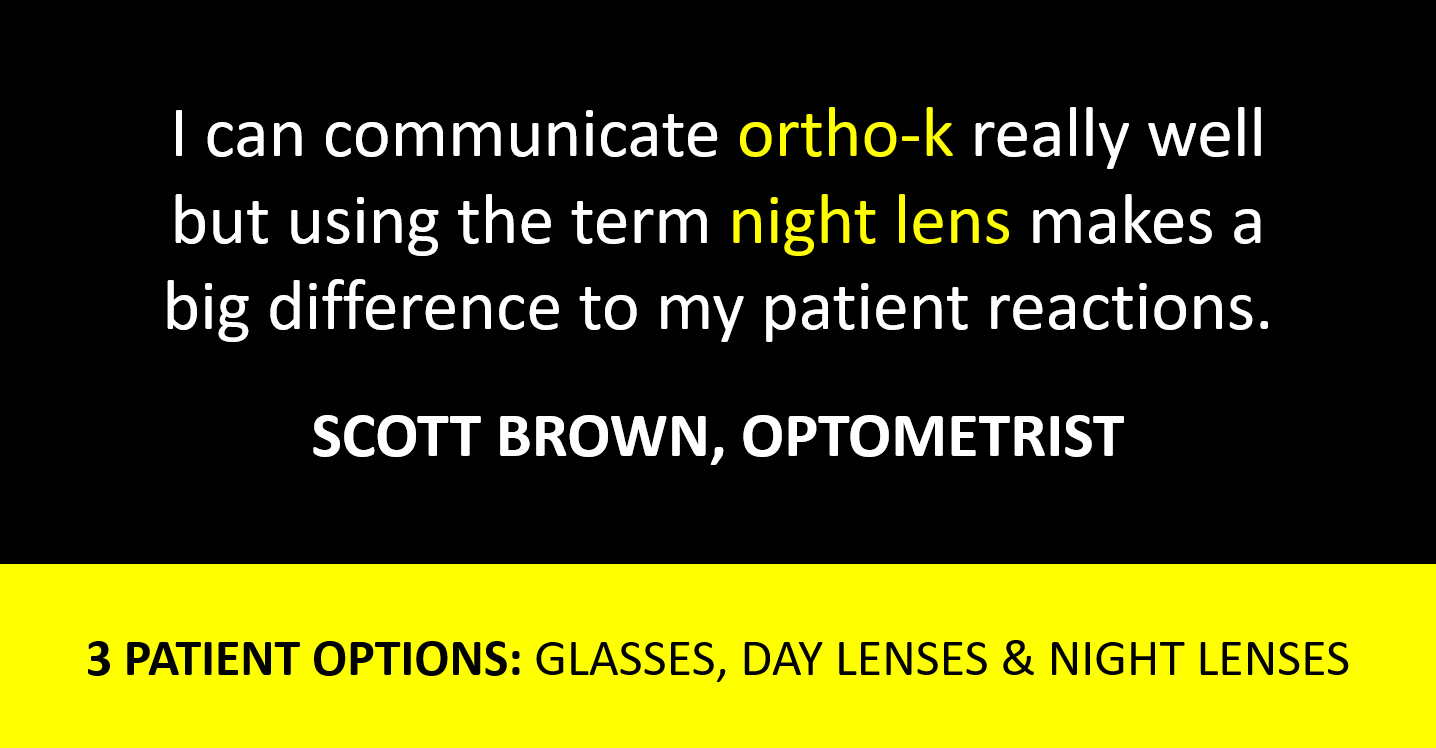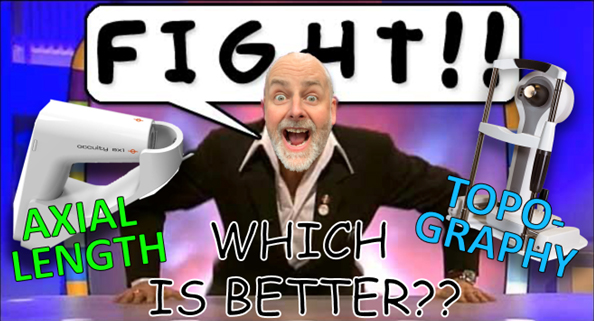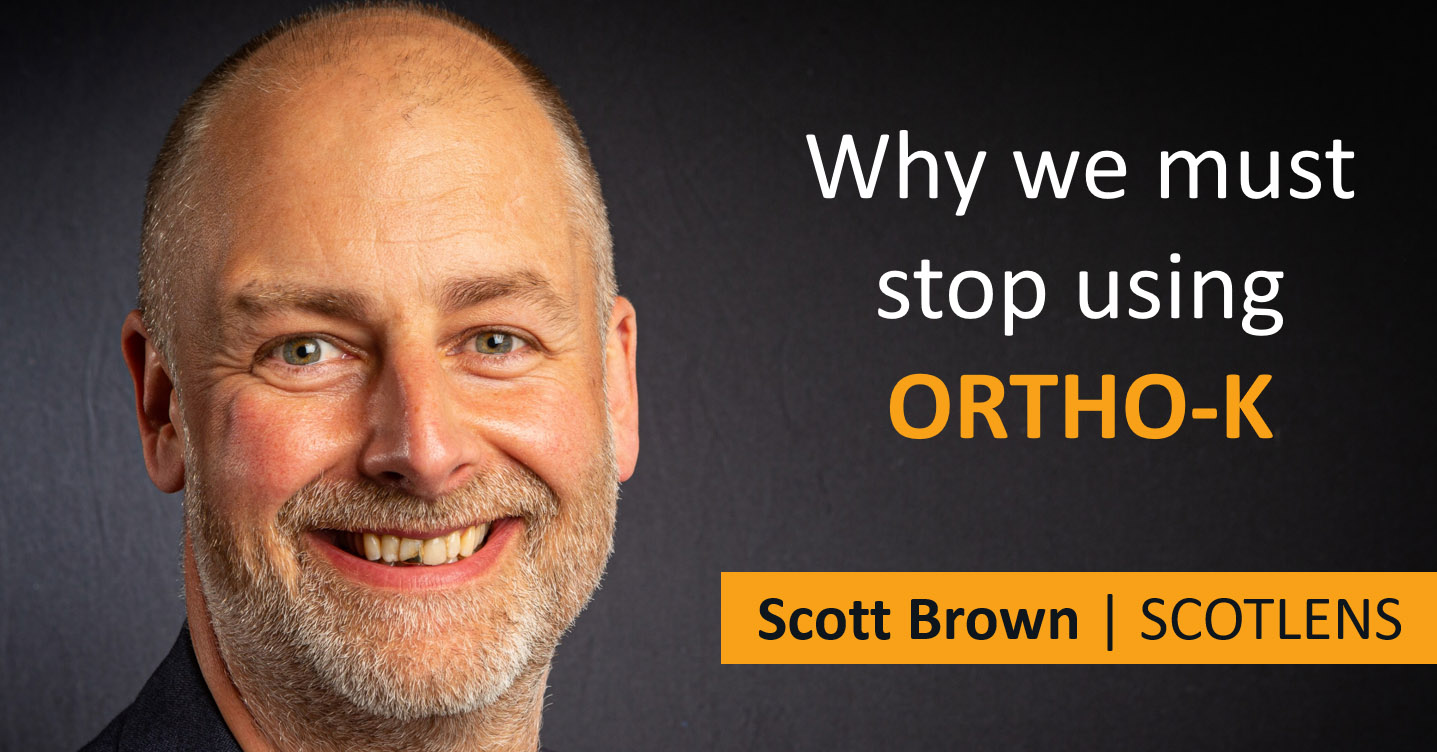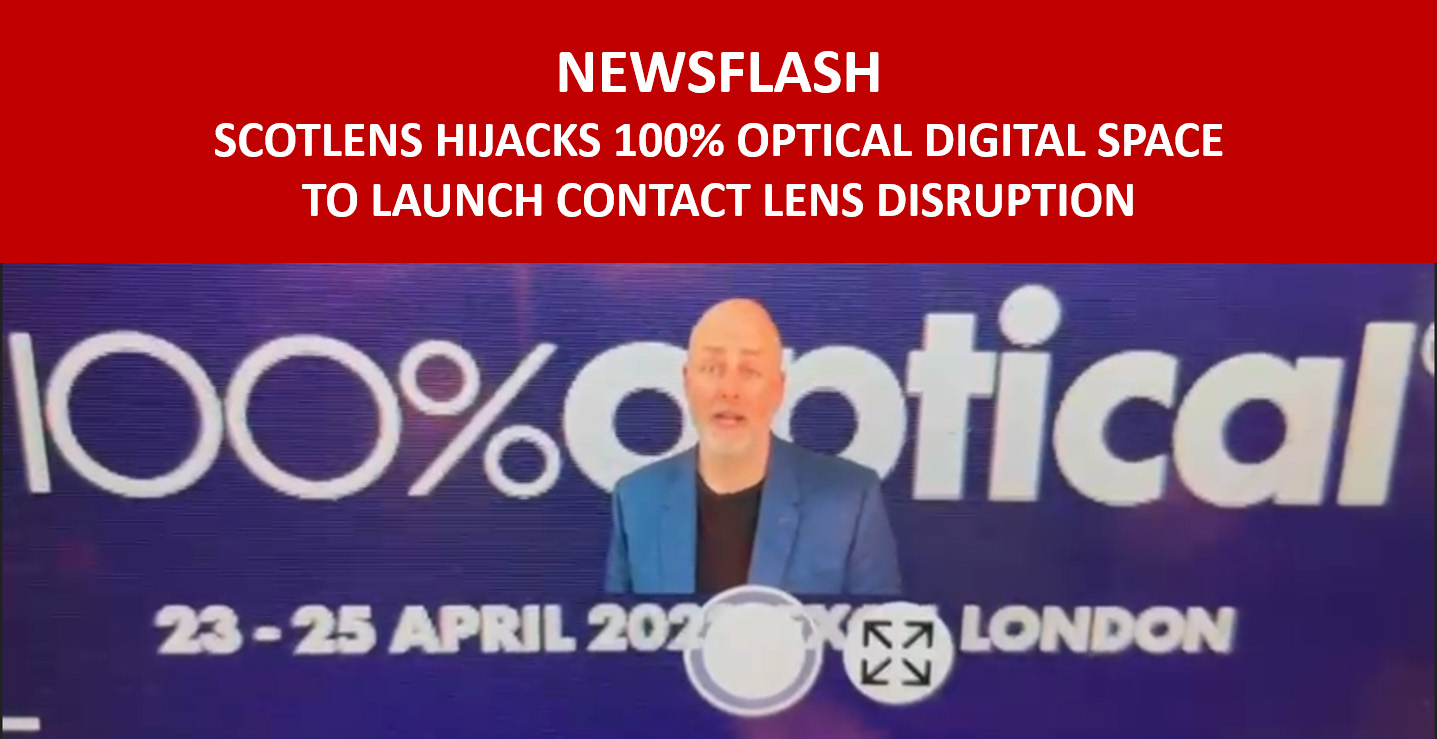By Scott Brown, Optometrist MCOptom, BSc(Hons) Optom, Dip OD
[Scott is also the Clinical Director & Lens Designer for Scotlens | Custom fit contact lenses, who make the Nocturnal Ortho-K night lens]
I have been asked this question a lot recently, so I thought I’d put my answer down in a blog post to share with others:
Whether to continue using the medical terms ‘Orthokeratology’ and ‘Ortho-K lenses’ (which, to be honest, has been one of the major factors that has lead to these incredible lenses not growing as they should have done by now)
… or whether to use the colloquial term ‘Night lenses’ which
- the public tend to use
- is commonly used in Europe and heralded as one of the main reasons for such great engagement
- manufacturers like us at Scotlens, Coopervision, Menicon etc are now using with the public, not ‘Ortho-K’.
As an Optometrist, what has been the difference switching to ‘night lenses’ for me?
I’ve been fitting Ortho-K for nearly 20 year now. I switched terms along with the launch of the Scotlens ‘night lenses’ marketing campaign about 6 months ago. Admittedly, it wasn’t an easy switch, as I’m used to my terms and my routine. But I have been blown away by the impact of saying to my patients:
“you have myopia, the options you have for correction are specs, day lenses or night lenses. For you night lenses would be good because…”
Compared to what I used to say which was:
“you have myopia, the options you have for correction are specs, daylenses or ortho-k. For you ortho-k would be good because…”
‘Ortho-k’ or ‘orthokeratology’ is a bit like using the word ‘astigmatism’, which immediately stalls the thought process for the patient as their mind grapples with something that is unusual and complicated for them. Using the term ‘night lenses’, especially in the familiar list of “Glasses, day lenses or night lenses”, makes it a normal mode of contact lens wear to them. They get it, they get that is new to them, but it’s not complicated or unusual – it’s a lens they wear at night.
If optoms aren’t convinced I urge them just to try it. They will see they can immediately move onto the benefits and the initial info they provide, as the patient understands that it is a perfectly feasible option without further unnecessary consideration.
It is the same with written communication on websites or pamphlets. Having a separate tab for something that sounds medical makes it less normal and more daunting for the patient. More Optometrists are changing their ‘Contact lenses’ homepage to show two main options – day lenses or night lenses. The patient thinks “Oh, I didn’t know about night lenses” versus what seems like a choice of contact lenses or orthokeratology, where they think “ortho…ker..a.tol… that must be complicated and expensive”. The web stats after you change will tell the story, the small number of people who used to naturally click on your Orthokeratology tab/link vs the large numbers who are naturally clicking on your Night lenses tab/link.
Vitally, the manufacturers are now using ‘Night Lens’
Ultimately, this is where the change is happening as the marketing messages to the public have changed from Ortho-K to ‘night lenses’. Which ultimately means that patients will be googling for ‘Night lenses Swansea’ (if you do not have this term on your website you won’t be found) or ringing up and asking your staff whether you do ‘night lenses’.
Coopervision: public facing content. Night lenses. No use of Ortho-K:
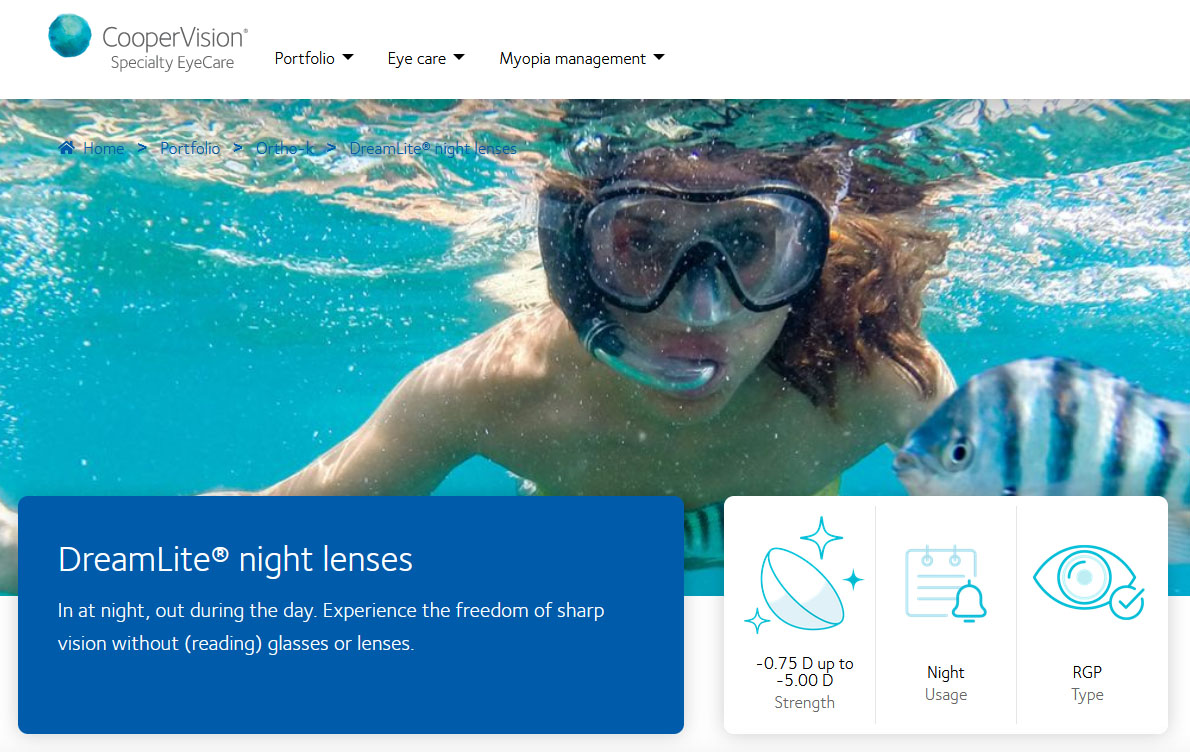
Menicon: content for Optometrists. Night lenses. No use of Ortho-K:
![]()
Scotlens: ‘freedom’ social media campaign. Night lenses. No use of Ortho-K:
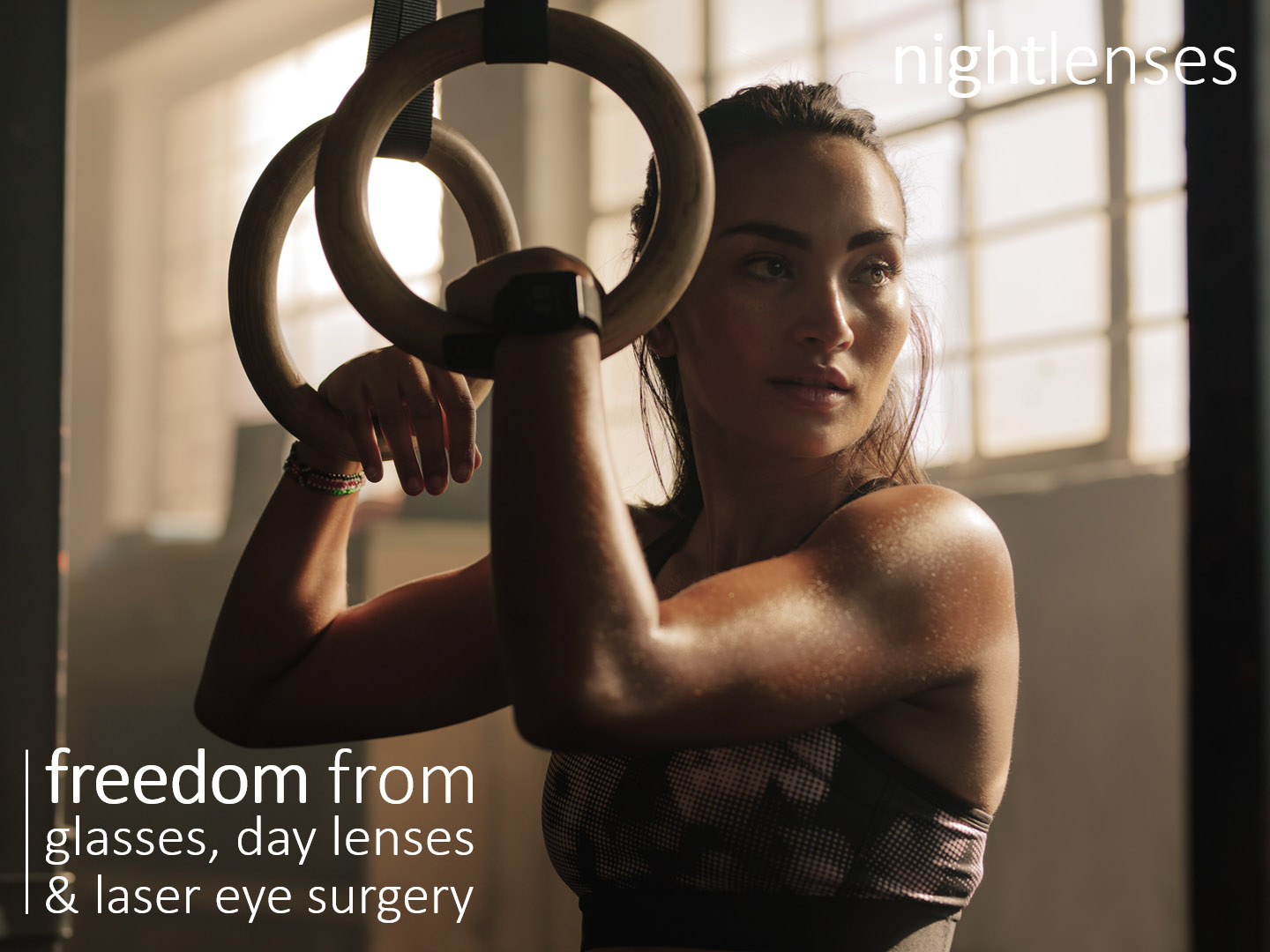
The reasons for switching terminology are pretty compelling. My message is not to get left behind just because you are used to doing it another way.
Try it!
Test it on non optometric people and your patients. It works and I’ll certainly never go back. You’ll see why communicating night lenses in Europe spread so quickly as the terms nocht lens/nacht lens were used from the start.
I can’t believe I was this slow to catch on. I can communicate Ortho-k really well, but using ‘night lens’ makes a huge difference to my patient reactions.
Good luck!
Scott
